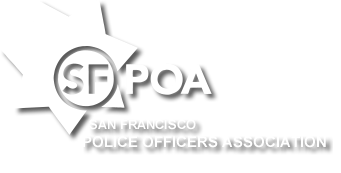It’s hard to remember a day more important to police labor’s future – and, by extension, to the future of all public employee labor – than the approaching Tuesday of November 2, 2010. For it is on that day that we will know whether the citizens of both San Francisco and San Jose believe that police officers and other public employees are equitably compensated or receive too much. There is simply no other way to put it.
If a majority of San Franciscans pass Measure B, such a vote will reflect the public’s belief, misguided and inaccurate though it may be, that the health care and retirement benefits received by San Francisco’s public employees are excessive – “excessive” at least in this current economic climate – thereby warranting sharp increases in the amounts those employees must contribute in order to continue receiving such medical care and retirement. Similarly, if a majority of the voters in San Jose pass Measures V and W, it will be an unmistakable sign that the voting public thinks compensation of public employees in San Jose has reached so high a level as to justify whittling away at officers’ and firefighters’ lone substitute for their inability to strike, namely, interest arbitration, as well as opening the door to a second, reduced tier of retirement benefits by affording the City Council unilateral authority to change the rates of contribution to the City’s retirement system.
In other words, on Tuesday, November 2nd, police officers in particular and public employees in general have a rendezvous with history. And if there’s one force in the universe whose effects cannot be ignored, it is the iron law of history. A victory in public employee labor’s favor will signify a dramatic call by the public for government employers to halt their hitherto relentless attacks on the public’s servants. Conversely, a defeat at the polls will signal a new age in the history of public employee unionism, particularly for police officers and firefighters, who have long enjoyed wide support given the risks inherent in their jobs.
By “iron law of history,” I do not mean to suggest that the results of the pending vote are in any way pre-ordained or that we, as individuals, have neither the responsibility nor the power to work as hard as we possibly can to achieve an outcome counter to what some polls presently indicate, namely, that ours is a bit of an uphill battle. To the contrary: our rendezvous with history is a call to arms, a call to action – if ever there were an opportunity to take your destiny in your hands, this is it. Our time, our challenge is now.
Such was the message San Francisco Chief of Police George Gascon delivered to rank-and-file police officers at a labor relations symposium last month: those who expect that history will simply return us to the heady economic times of the late 90’s stand in ignorance of history’s unforgiving law: time’s arrow only moves forward, it does not revert back. It is our duty to recognize the historical reality of the present economic age in which we live – unpleasant as that might be with the ubiquitous cries for “pension reform” and the rollback of public employee pay and benefits – and do the best that we can to shape the trajectory of our economic future. Irrespective of how the vote on November 2nd ultimately turns out, that duty will remain. The iron law of history demands no less.
“Roll the Union On . . .”

